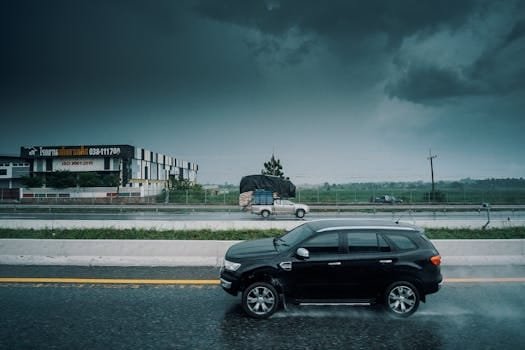When you’re planning a trip—whether it’s for business or vacation—weather-related delays can quickly turn a smooth journey into a costly headache. Best travel insurance coverage for weather-related delays is essential for travelers who want financial protection and peace of mind when faced with flight cancellations, missed connections, or overnight layovers caused by storms, blizzards, hurricanes, or other adverse weather conditions. In this guide, we’ll explain what weather delay coverage includes, how to choose the best policy, and which providers offer the most reliable protection.
What Is Travel Insurance for Weather-Related Delays?
Travel insurance for weather-related delays is a specific benefit within comprehensive travel insurance policies. It offers financial reimbursement and travel assistance if severe weather disrupts your plans after your journey has already begun. This type of coverage ensures you’re not left paying out-of-pocket for hotel stays, meals, or alternative transportation when nature throws your itinerary off course.
Common Covered Weather Events:
- Thunderstorms and lightning
- Snowstorms and blizzards
- Hurricanes and tropical storms
- Tornadoes
- Fog-related visibility issues
- Flooding and heavy rainfall
Why Do You Need Coverage for Weather-Related Delays?
Bad weather can lead to grounded flights, canceled tours, and even missed cruises or hotel reservations. Without proper insurance, these interruptions can cause significant financial loss.
With the right travel insurance, you can get:
- Reimbursement for additional meals and hotel stays
- Coverage for rebooking flights or alternate transportation
- Compensation for missed connections due to delays
- 24/7 travel assistance to help re-arrange your schedule
What to Look for in the Best Weather Delay Coverage
When comparing travel insurance policies, there are specific features that are essential for solid protection against weather-related delays.
1. Minimum Delay Time Requirement
Most insurers require a delay of at least 6–12 hours before benefits kick in. Check the policy wording to know how long a delay must last for reimbursement to apply.
2. Covered Expenses
Top-tier policies reimburse for:
- Hotel accommodation
- Meals
- Transportation
- Phone calls and communication costs
3. Trip Interruption Benefits
If weather forces you to cut your trip short, some policies offer trip interruption coverage, reimbursing the unused portion of your trip and transportation back home.
4. Travel Delay vs. Trip Cancellation
Don’t confuse travel delay coverage with trip cancellation. Travel delay applies once your trip has started. For weather-related cancellations before departure, make sure your policy includes cancellation coverage due to weather.
Comparison Table: Top Insurance Providers for Weather Delays
| Provider | Minimum Delay Time | Weather Covered | Max Delay Benefit | Emergency Support |
|---|---|---|---|---|
| Allianz Travel | 6 hours | Storms, snow, hurricanes | Up to $1,500 | 24/7 hotline |
| Travel Guard by AIG | 5 hours | Most weather events | Up to $1,000 | Yes |
| Seven Corners | 6–12 hours | Natural disasters, delays | $150/day, $600 max | Yes |
| AXA Travel Insurance | 6 hours | Delays due to weather & more | Up to $1,000 | Yes |
| Generali Global Assistance | 6 hours | Storms, heavy fog, winter weather | $200/day, $1,000 max | Yes |
Real-World Scenarios Where This Coverage Helps
- Flight cancellation due to snowstorm in Chicago – get a hotel room reimbursed and alternate flight booked.
- Fog delay at London Heathrow – delay benefits cover missed connection and meals.
- Hurricane evacuation – trip interruption reimburses return flight and unused hotel nights.
How to File a Claim for Weather Delay
To get reimbursed for weather-related delays, follow these best practices:
Step-by-Step Claim Process:
- Save all receipts for expenses like food, taxis, and hotel stays.
- Request proof of delay from your airline (e.g., written confirmation).
- Submit claim online with documentation.
- Track progress through the insurance provider’s customer portal.
Tips:
- Take timestamped photos of airport screens or airline emails.
- Keep your boarding passes and full travel itinerary.
Internal Resource: Learn More About Trip Interruptions
If you’re looking for broader protection, check our article on trip interruption insurance for natural disasters, which covers hurricanes, floods, and wildfires.
External Resource: FAA Weather Delays
You can monitor official airport delay statistics and weather advisories on the Federal Aviation Administration’s Weather Delay Dashboard.
FAQs About Weather Delay Coverage
1. How soon do I need to buy the policy for weather to be covered?
Most policies must be purchased before a storm is forecasted or named. Buying coverage after an event is predicted may invalidate your claim.
2. Does weather delay insurance apply to cruise or train trips?
Yes. Weather delay coverage can apply to missed cruise departures or Amtrak schedules, depending on the policy.
3. What’s the difference between travel delay and trip interruption?
Travel delay applies when your trip is temporarily delayed, while trip interruption coverage applies when you end the trip early due to a covered event.
4. Do I need this insurance for domestic travel?
Absolutely. Weather can disrupt flights across the U.S., and domestic travelers face delays just as often as international ones.
5. Can I add Cancel For Any Reason (CFAR) protection?
Yes, many providers offer a CFAR upgrade that lets you cancel for non-weather reasons too, though it must be added within a certain time of booking.
Final Thoughts
Choosing the best travel insurance coverage for weather-related delays is a smart move for anyone traveling in 2025, especially with unpredictable weather events becoming more common. Look for policies that offer broad weather protection, low minimum delay thresholds, and high daily benefit limits. With a reliable plan in place, you can travel with the assurance that unexpected weather won’t ruin your schedule—or your wallet.



